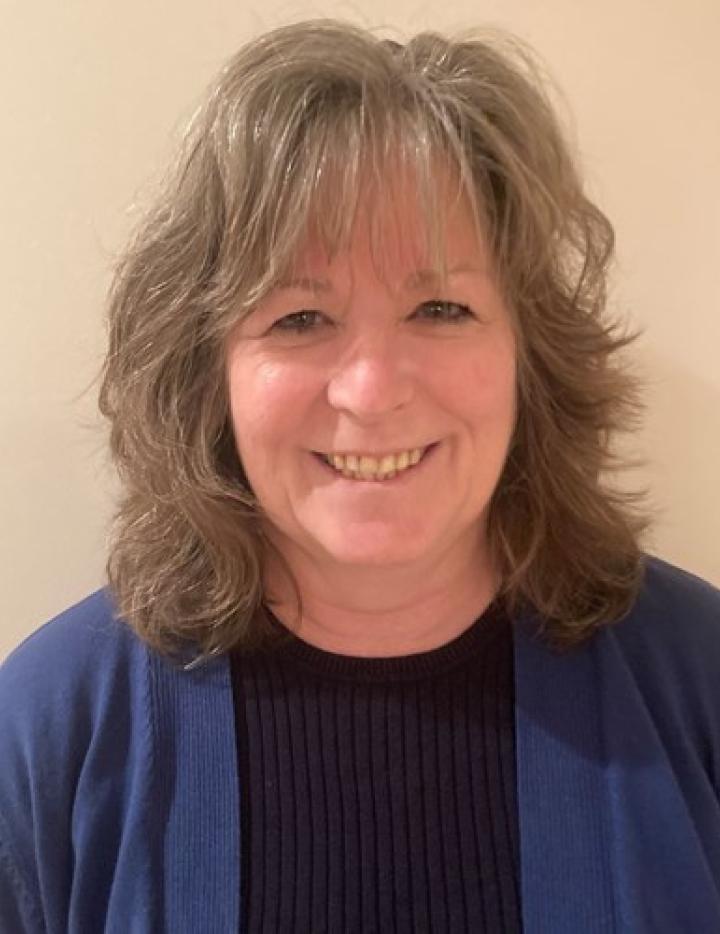
CAPhO Conference 2023
Program
The Conference program is developed around a theme and will feature a diverse slate of plenary, concurrent sessions and round table discussions to engage and inform participants of the advances in oncology pharmacy. New this year is the Bone Marrow Transplant (BMT 101) Workshop taking place on Thursday, April 13.
In addition to leading-edge education, the program will include two opportunities to interact with CAPhO’s leadership during CAPhO’s Annual General and Town Hall Breakfast meetings – your chance to discuss relevant questions affecting the association. And, as always, there will be a number of sponsored symposia taking place as well as networking events with the Welcome Reception on Friday and the CAPhO Awards Gala on Saturday evenings.
The program will be accredited by the Canadian Council on Continuing Education in Pharmacy (CCCEP).
Monday
April 10, 2023
Program is subject to change. All times indicated are Eastern Daylight Times (EDT).
Treatment Evolutions & Approaches in the Management of Prostate Cancer: Bridging the Gap between Science and Patients
Learning objectives:
At the conclusion of this program, participants should be able to:
- Recognize the DNA damage response (DDR) gene mutations that are involved in prostate cancer, and their implications for therapy
- Integrate genetic testing for patients with prostate cancer into their clinical practice
- Describe the mechanism of action, efficacy, and safety of PARP inhibitors in order to employ these agents for the treatment of prostate cancer with DDR mutations
- Explain the timing, monitoring, and management of adverse events
The Amgen pre recorded symposium will cover two topics for 30 minutes each.
Topic #1: Practical Solutions to managing EGFR inhibitor related adverse events in patients with metastatic colorectal cancer
Presentation Summary:
Description: Monoclonal Antibody EGFR inhibitors play an important role in the 1L treatment of RAS Wild-type metastatic colorectal cancer (mCRC) patients. This class of drug is associated with a set of unique but predictable dermatologic and renal toxicities. This video will review the role of EGFR inhibitors in the management of mCRC and the most common side effects to expect during treatment. The video will also review the important role Pharmacists play in both proactive and reactive strategies to optimize the management of EGFRi related toxicities.
Topic #2: A Rapid Review of Bone Targeted Agents (BTAs) and the role of Pharmacy in Optimizing Patient Care
Presentation Summary:
Bone is a frequent site of metastatic disease for solid tumors and multiple myeloma. Untreated bone metastases can result in skeletal related events (SREs) such as pathologic fractures, spinal cord compression, hypercalcemia, and uncontrolled pain. Bone targeted agents (BTAs) can delay time to first and subsequent SREs, correct hypercalcemia, and improve pain control. Pharmacists can play a key role through patient education, subcutaneous dose administration, dose optimization, ensuring adherence to toxicity preventative strategies, and collaborative toxicity management. This session will provide an overview of BTAs, their associated toxicity, and how pharmacists can play a key role in the patient journey.
Integrating Pharmacists into Multidisciplinary Decisions for Patients with CLL: The Pharmacist’s Toolkit for Pushing Practice Forward
This symposium provides a review of current targeted treatment options in CLL and key supporting clinical data focused on practical perspectives to pharmacists. The presentation highlights differentiated MOA and DDI’s of agents and practical management of adverse events. The objective is help increase pharmacist’s confidence in the multidisciplinary management of CLL patients in an era of many new developments and new clinical data.
Thursday
April 13, 2023
Program is subject to change. All times indicated are Eastern Daylight Times (EDT).
The Bone Marrow Transplant (BMT 101) Workshop is an in-person workshop developed by the Education Pharmacist Advanced Committee and sponsored by Jazz Pharmaceuticals. A limited number of seats are available so register now to ensure you reserve your spot.
Learning objectives:
- Describe the different types of cellular therapy used to treat hematologic malignancies
- Identify early and late complications following hematopoietic stem cell transplant
- Describe the role of a pharmacist in caring for patients who have received a stem cell transplant
- Identify drug related problems and develop a supportive care plan for patients undergoing cellular therapy
Join Apotex for a live 90 minute symposium exploring the Evolution of Multiple Myeloma – past, present and future. This symposium will be presented from the unique perspective of three members of Sunnybrook Hospital’s multi-disciplinary myeloma patient management team, including Dr. Neil Berinstein (hematologist), Carmilia Sun (oncology pharmacist) and Susan Singh (pharmacy technician). Dr. Berinstein will highlight the clinical and therapeutic evolution of the treatment of multiple myeloma, followed by Carmilia Sun who will touch on the financial impact of myeloma treatment and the need for sustainability within the Canadian healthcare system. Lastly, Susan Singh will close the symposium discussing the increasingly important role of pharmacy in patient management and support in the management of multiple myeloma.
Learning Objectives:
- To understand Multiple Myeloma (MM) and how treatment has evolved and continues to evolve.
- To understand the impact of the cost of treating MM on the healthcare system and role generics can play in sustainability.
- To understand the important and evolving role of the pharmacist in patient care and support.
Presentation Summary:
A moderated panel including medical oncology and oncology pharmacy experts who will discuss the critical collaboration of the oncology pharmacist within the multi-disciplinary team, to support and manage patients with advanced renal cell carcinoma (aRCC) throughout their treatment journey. The session will outline the utilization of oral VEGF inhibitors for the treatment of aRCC, including the mechanism of action and common adverse events. The panel will explore best practices for monitoring and managing oral VEGF inhibitors, including patient counseling & AE management, as well as discuss strategies for collaborating across the multi-disciplinary team to facilitate positive patient experience and optimize therapy. These best practices can extend beyond application for aRCC to other disease sites where oral VEGF inhibitors are indicated.
Learning Objectives:
- Describe the role of oral VEGF (TKI) inhibitors in the treatment of advanced renal cell carcinoma (aRCC)
- Identify best practices for monitoring and managing oral VEGF inhibitors as single agents and in combination with immunotherapy
- Discuss multi-disciplinary team strategies to optimize therapy and patient experience with oral VEGF inhibitors
Friday
April 14, 2023
Program is subject to change. All times indicated are Eastern Daylight Times (EDT).
Presentation Summary
Asparaginase is a cornerstone of Acute Lymphoblastic Leukemia (ALL) chemotherapy treatment. Despite its use for more than 40 years, the administration of asparaginase does come with its challenges. Toxicities, such as hypersensitivity, of asparaginase are well documented, yet remain an issue and it is important to understand how to manage them. Experience and clinical studies have shown us that not receiving all prescribed asparaginase doses was associated with inferior outcomes.
Learning Objectives
- Review the management of hypersensitivity reactions; rechallenge, desensitize, or switch.
- Lessons learned from the University of Michigan experience in times of drug availability volatility.
- Understand the application and value of Therapeutic Drug Monitoring (TDM) to ensure efficient utilization of Asparaginase options.
- Discuss future treatment options for Asparaginase therapy in ALL.
Presentation Summary
HER2+ metastatic breast cancer (mBC) therapy options have been evolving rapidly. This symposium will review new therapies for HER2+ mBC, the updated CADTH funding algorithm, and provide practical suggestions to managing adverse events especially for patients taking multi-drug regimens.
The metastatic urothelial cancer (mUC) treatment landscape has also seen new therapies come to market. Join us for a review of recent therapy options and discuss approaches to patient counselling and management of treatment-emergent adverse events.
Learning Objectives:
- Review the treatment landscape for HER2+ mBC patients and access to new therapies
- Discuss challenges of counselling patients with multi-drug regimens and share best practices
- Understand current approaches to patient counselling in the treatment landscape for mUC
- Implementation of management strategies to prevent or alleviate treatment-emergent adverse events from newer mUC therapies
Presentation Summary
Recent advancements in the treatment of multiple myeloma (MM) include the addition of novel therapeutics, combination strategies and moving these novel combinations into the front line setting for patients living with MM. Despite these advancements, MM remains an incurable disease and patients will require multiple lines of therapy.
Treatment strategies for early rrMM can be confounded by many factors including prior therapies, response to prior therapies, disease biology, underlying comorbidities, and patient choice.
This symposium is intended to strengthen the oncology/hematology pharmacists’ understanding of the evolving treatment landscape in early rrMM and, through a collaborative approach with a multidisciplinary team, how to improve patient outcomes and experiences throughout their myeloma journey.
Learning Objectives
At the end of the symposium, pharmacist participants should be better able to:
- Identify the evolving unmet needs for patients with early rrMM
- Describe factors that influence sequencing in early MM, including the current recommendations based on available CADTH Provisional Algorithm
- Compare and contrast the treatment options available for patients progressing on daratumumab
- Implement strategies through collaboration with a multidisciplinary care team for optimal management of adverse events with novel therapies for early rrMM
In HR+ HER2- advanced breast cancer, the pharmacist is a key member of the multi-disciplinary health care team and an important resource in the patient journey. Given the rapidly evolving science, and maturation of clinical trial data, the ability to remain up to date can be challenging.”
Our distinguished faculty have put together case-based scenarios to initiate discussion and provide up to date information for treatment decision making as well as therapeutic monitoring and management”
Please join us on Friday, April 14, 2023, from 12:15 to 13:45 pm EDT.
Presentation Summary:
Part 1 of this year’s Apobiologix Symposium will discuss the important topic of retention strategies to address the post pandemic human resource crisis in healthcare. Raelynn Douglas, the Executive Director of the Saskatchewan Drug Plan, will discuss the current healthcare human resource crisis and its high cost. She will also define the retention strategies you can employ to reverse this trend, and describe what actions individuals and leaders should be taking to address these challenges.
Part 2 of the Symposium will include the announcement of the annual HOPE Award winners, as well as their presentations.
Presentation Summary:
Although recent guidelines and clinical evidence support the use of first-line maintenance immunotherapy as the new standard of care for eligible aUC patients, pharmacists are still learning how to effectively integrate this therapeutic approach into clinical practice. Highlighted by a real patient who will share their personal journey living with aUC, this program will use a patient-centred approach to build on the foundational knowledge established during the 2022 "UC NOW" program. The experienced speakers will share their personal experience and discuss how the latest evidence can be applied to complex patient scenarios.
Learning Objectives:
- Translate the current evidence for first-line maintenance immunotherapy into clinical scenarios that can be applied in practice.
- Formulate strategies to enhance the care of complex patients receiving maintenance immunotherapy.
- Optimize shared decision making and patient education to effectively address unmet needs throughout the aUC journey.
Presentation Summary:
Join us for a live 90-minute symposium exploring the power of oncology pharmacists to improve adherence and optimize patient outcomes with oral oncology medications, such as BTK inhibitors for the management of chronic lymphocytic leukemia (CLL).
Learning Objectives:
- Elevate the impact of the Oncology Pharmacy Team to empower patients via education on the optimal use of oral oncology medications
- Understand the importance of patient adherence and persistence in the context of oral BTK-inhibitors and chronic lymphocytic leukemia (CLL)
- Implement pharmacy best practices to drive short-term and long-term patient adherence to oral BTK-inhibitors
Saturday
April 15, 2023
Program is subject to change. All times indicated are Eastern Daylight Times (EDT).
Presentation Summary
While the application of artificial intelligence (AI) has transformed numerous sectors including retail, transportation, and hospitality, its application to healthcare has been relatively limited. Health AI research has increased exponentially as has the number of commercially available AI solutions. A recent survey indicates approximately 40% of healthcare leaders are already using AI at their institutions. This session will review the concept of AI, its applications in healthcare, challenges in developing and deploying AI solutions in healthcare, and what future healthcare users of AI technologies should know when acquiring and/or using these exciting solutions.
Learning Objectives
- To provide a general overview of artificial intelligence and its implications for the diagnosis and management of cancer patients
- To discuss the barriers to implementation of artificial intelligence in clinical practice
- To provide a view of how artificial intelligence will transform healthcare with examples of its emerging role in the diagnosis and management of cancer patients
Presentation Summary:
There are many available methods to assess renal function in clinical practice. In oncology, there are many inconsistencies in assessing renal function and no clear consensus in Canada on which method to assess renal function is preferred. This presentation will examine the evidence for the different methods to assess renal function in oncology patients. This presentation will evaluate, with patient cases, the impact of the different methods of assessing renal function on the initiation of oncology drugs and dosing adjustments for renal impairment. The presentation will also focus on the role of the oncology pharmacist in developing a standardized approach to assessing renal function in cancer patients.
Learning Objectives:
- Describe the current methods for assessing renal function in cancer patients
- Discuss the evidence for newer methods of assessing renal function
- Determine the impact of the different methods of assessing renal function on oncology patient cases
Presentation Summary:
There are two worlds of healthcare. In regions of South and Southeast Asia, 80% of young people diagnosed with cancer and other serious illnesses die. In countries such as Canada, approximately 80% of young people with similar diagnoses will survive. There are opportunities to harness Canadian and international healthcare knowledge and leadership to assist healthcare providers in lesser-resourced countries. Through education and mentorship collaborations, we can close the circle and reduce the burden of cancer and other life-limiting illnesses. As drug therapy specialists, pharmacists’ clinical expertise remain under-utilized within healthcare teams that serve patients in low and middle income countries (LMIC). How can we change that?
Learning Objectives:
By the end of this session, I hope to share my experiences so attendees can:
- Realize the perceptions of pharmacists in Lower Middle Income Countries (LMICs).
- Appreciate how pharmacists can integrate within global teams that collaborate creating capacity for LMICs.
- Optimize education initiatives and advocacy for inclusion of clinical pharmacy practice in LMICs.
Presentation Summary:
This presentation focusses on the Poly ADP-Ribose Polymerase inhibitors (PARPIs) available in Canada. PARPI structure, biochemistry, indications, landmark trials, access, pharmaceutics, clinical pharmacology, toxicities and medication management will be discussed.
Learning Objectives:
By the end of this session, the learner will be able to:
- Identify the PARPIs on the Canadian market and describe their mechanism of action
- Describe PARPI indications & review key data from landmark clinical trials
- Compare and contrast PARPI access and clinical pharmacology
- Compare and contrast PARPI toxicities and monitoring strategies
Presentation Summary:
Fluoropyrimidines (FPs) continue to play a significant role in cancer therapeutics. They are used across the disease spectrum as single agents and in combination with other antineoplastics or radiation.
Their adverse effects (AEs) are well known. However, predicting AE occurrence and severity is challenging. Dihydropyrimidine dehydrogenase (DPD) is responsible for 5-FU metabolism. Patients with DPD-deficiency (coded by the DPYD gene) have increased susceptibility to FP AEs. The presentation will review the following aspects of prescreening for DPYD variants:
DPYD variants of clinical significance, data to support prescreening, Clinical Pharmacogenetics Implementation Consortium dosing guidelines, implementation challenges and the pharmacist’s role.
Learning Objectives:
At the end of the presentation the Attendees will be able to:
- Describe the role of DPYD gene variants in the occurrence and severity of fluoropyrimidine adverse effects
- Recall the literature supporting prescreening for DPYD gene variants
- Explain the benefits of prescreening for DPYD gene variants
- Identify resources to aid in fluoropyrimidine dosing based on DPYD gene variant prescreening results
- Recall the enablers and challenges to implementing prescreening of DPYD gene variants
Presentation Summary:
If innovations are the creative by-product of challenges then hospital pharmacy renovations should provide the perfect conditions for generating innovative ideas. Join us to hear how the BC Cancer used a Mobile Mixing Trailer to maintain hazardous drug compounding services during recent NAPRA renovations.
Learning Objectives:
- To describe the innovative implementation of a mobile mixing trailer to enable continuity of care during pharmacy renovations
- To describe the process of complying with NAPRA standards within a mobile mixing trailer
Presentation Summary:
Acute Myeloid Leukemia (AML) is the most common leukemia in adults, however until recently, the treatment toolbox for these patients was limited. Over the last several years, the landscape has changed significantly with the availability of novel targeted agents and oral therapies. With this evolution, comes a greater role for community pharmacists to participate in the care of the AML patient population. This presentation will provide a foundation for understanding the evolution of AML treatments, basic treatment principles and the key roles of the community pharmacist in the care of these patients.
Learning Objectives:
- Contrast the goals of AML treatment: curative vs palliative
- Summarize the evolution of AML treatment over the years
- Identify novel and targeted agents for the treatment of AML and their place in therapy
- Apply the key roles of the pharmacist to your practice:
- Recognize common side effects of treatment and associated supportive care medications
- Provide patient education for select common side effects
Presentation Summary:
Since completing his BScPharm in 2004 (UManitoba), PharmD (UToronto) in 2009, and clinical and research fellowship in oncology at Sunnybrook Health Sciences Centre in 2011, Mark has been serving as the Oncology Pharmacy Clinical Practice Lead at the Odette Cancer Centre. Areas of practice include supportive care and is a member of the gastrointestinal cancer site group. In addition to clinical care, Mark has a strong interest in patient and health professional education. Along with the pharmacist team, he has precepted pharmacy trainees of all levels continuously since 2012. Mark also is the current Year One Pharmacy Residency Coordinator.
Learning Objectives:
- Summarize the pathophysiology, risk factors, and incidence of cholangiocarcinoma
- List the current systemic treatments for management of cholangiocarcinomas
- Describe the supportive care management of patients receiving systemic therapy
Presentation Summary:
A review of best practices when completing BPMH and the roles technicians have in these processes. Discussion of the ideal staffing levels to be able to perform BPMH for all patients and any special considerations when performing a BPMH in an oncology setting.
Learning Objectives:
By the end of this panel, participants will:
- After participating in this panel, attendees will be able to define a BPMH and describe the role of pharmacy technicians within that definition.
- Throughout the panel, participants will identify special considerations for BPMH’s performed in an oncology setting.
- By the end of this panel, participants will understand what the staffing requirements are for optimal BPMH collection.
Presentation Summary:
Since hazardous drug cleanrooms are a negative pressure environment they tend to cause challenges with excursions during environmental monitoring. There are many aspects that may contribute to these excursions and this lecture will help identify some of those causes but also bring forward suggestions for remediation. Running a thorough, documented investigation and remediation is key in order to prevent a failure in contamination control.
Learning Objectives:
- Determine the NAPRA Model Standard requirements for environmental monitoring, investigation, and remediation. Discuss common issues found with environmental monitoring in negative pressure cleanrooms.
- Explain key components for investigation and remediation of environmental excursions.
- Provide suggestions for investigation and remediation strategies.
- List documentation elements recommended for an investigation and remediation.
Sunday
April 16, 2023
Program is subject to change. All times indicated are Eastern Daylight Times (EDT).
Presentation Summary:
Join Dr. Sandeep Sehdev, Scott Edwards, Glenn Myers and Benedict Romano for an interactive discussion entitled ‘Redefining the Lines of Triple-Negative Breast Cancer’. In addition to an update on the current and emergent therapies, the panel in this Symposium will focus on exchanging practical experiences and tips with patient management.
Learning objectives
- Review the TNBC treatment landscape
- Discuss the evidence of new therapies for metastatic TNBC
- Learn real-life tips for managing adverse events using patient cases
Presentation Summary:
The Medication Assessment by Pharmacist (MAP) program is a shared care model between medical oncologists and pharmacists at BC Cancer Surrey. MAP started in February 2019 in breast cancer patients on CDK4/6 inhibitors, but has expanded to encompass multiple oral oncology drugs. In this program, stable patients deemed suitable by their oncologist can alternate seeing oncologist and pharmacist at every other clinic visit. This reduces ambulatory patient visits for oncologists, allowing them to see other patients or complicated cases. MAP may help alleviate oncology provider shortages, and creates an opportunity for pharmacists to expand clinical roles in direct patient care.
Learning Objectives:
- Describe the Medication Assessment by Pharmacist (MAP) program
- Recognize some of the drugs and malignancies covered in the MAP program
- List the key steps in establishing and implementing the program, and describe some of the possible challenges
- Discuss potential future directions of the program
Presentation Summary:
Any healthcare professional working in a setting where hazardous drugs are transported, prepared, administered to patients, or handled for disposal may be directly or indirectly exposed to hazardous drugs through the course of their work. Occupational exposure is typically defined as the chronic low-dose exposure that occurs when hazardous drugs are handled over the course of a career, but may also include acute exposures to drug spills and body fluids. Health risk depends on the degree of exposure over time and the inherent toxicity of the applicable drugs. Efforts to minimize occupational exposure should include the identification of drugs which are hazardous and the implementation of safe handling standards for hazardous drugs used in different healthcare settings. Two organizations will describe their approach to hazardous drugs.
Learning Objectives:
At the conclusion of this activity, participants will be able to:
- Describe two different provincial approaches to the development and maintenance of an institutional hazardous drug list
- Identify the advantages and challenges of adopting the NIOSH 2020 Draft List of Hazardous Drugs for the creation/maintenance of an institutional hazardous drug list
- Discuss some options for disseminating information about hazardous drugs to other allied health professionals within their institution
In this round table discussion, participants choose which topic in the realm of palliative care they would like to focus on. From the reemergence of therapeutic psychedelics, the potential drug interactions with these agents, to looking at a recent study on CBD use in advanced cancer patients, to a novel way to consider when opioid switching, to opioid-induced constipation management tips, we can rethink these topics that have been around for decades.
Discussion around the OH-CCO Hepatitis B Virus Screening and Management Guidelines for patients receiving systemic treatment and implementation at a mid-sized Regional Cancer Centre.
Natalie will be sharing her experience with the Paxman cold cap system while she was on chemotherapy. Mova will briefly present the evidence and support for cold cap therapy.
This round table will discuss the management of adverse effects and drug interactions with CDK 4/6 inhibitors, particularly as they start to enter the adjuvant treatment space.
Steven will discuss the increasing use of compassionate drug supplied to our center and strategies we use to keep on top of reordering. Also, the time and effort that goes into private infusion clinic coordination and how to keep organized in this role in general.
Climate change is impacting oncology in multiple ways - through the impact to cancers and comorbidities themselves, through the impact to medication management as well as through access to treatment. This session will provide a brief introduction to all three areas, and provide a greater understanding of the oncology pharmacist role in climate change and planetary health more generally.
Contamination of work areas with hazardous drugs poses a health risk to healthcare workers. Surface wipe sampling measures levels of hazardous drug contamination allowing employers to assess risk levels and take appropriate action.
This session will focus on what’s new in the updated recommendations for the prevention of febrile neutropenia (FN) and new guidelines for the outpatient management of FN in adult cancer patients receiving systemic treatment in Ontario. Share best practices among different institutions on the assessment for outpatient management as well as prevention and management of FN.
As more biosimilars become available in Canada, they present a significant opportunity to change the oncology treatment and supportive care landscape. However, it is essential that healthcare providers have a strong understanding of these products to ensure effective implementation into clinical practice. Join us for a review of biosimilar best practices within oncology, including a panel discussion around the practicalities of working together to optimize patient care.








































